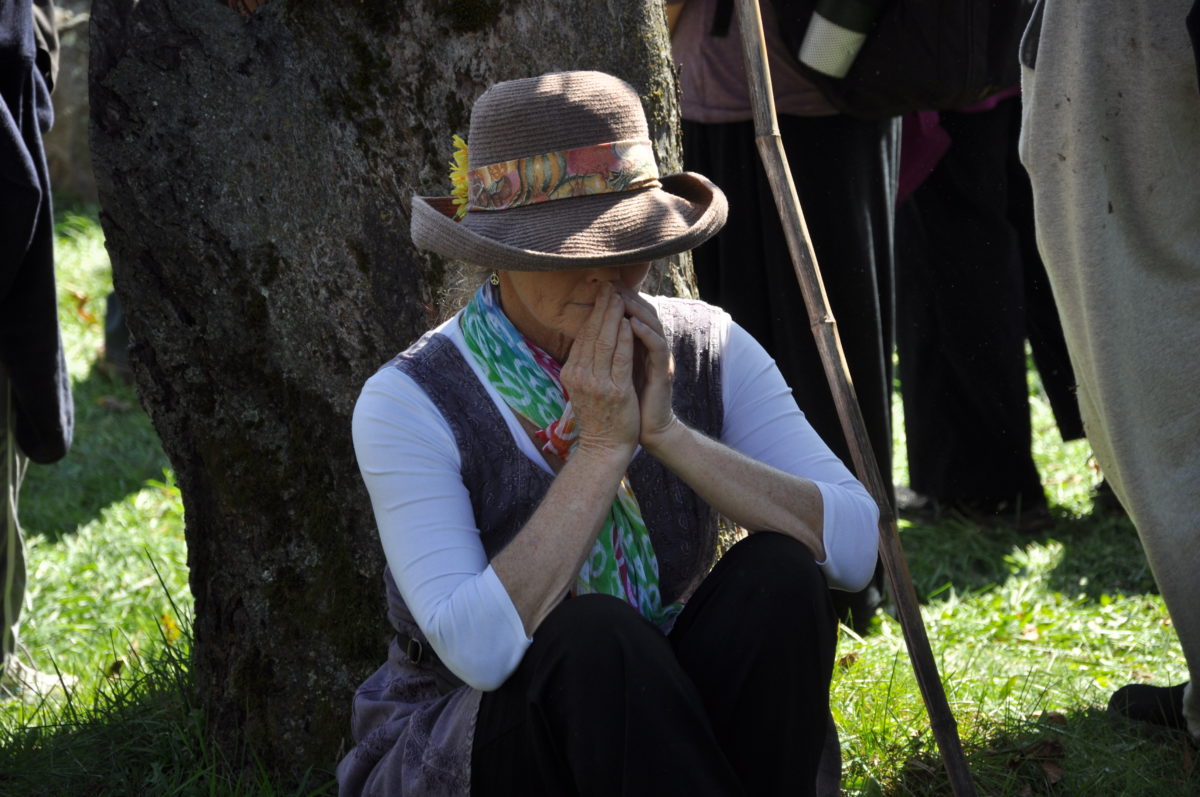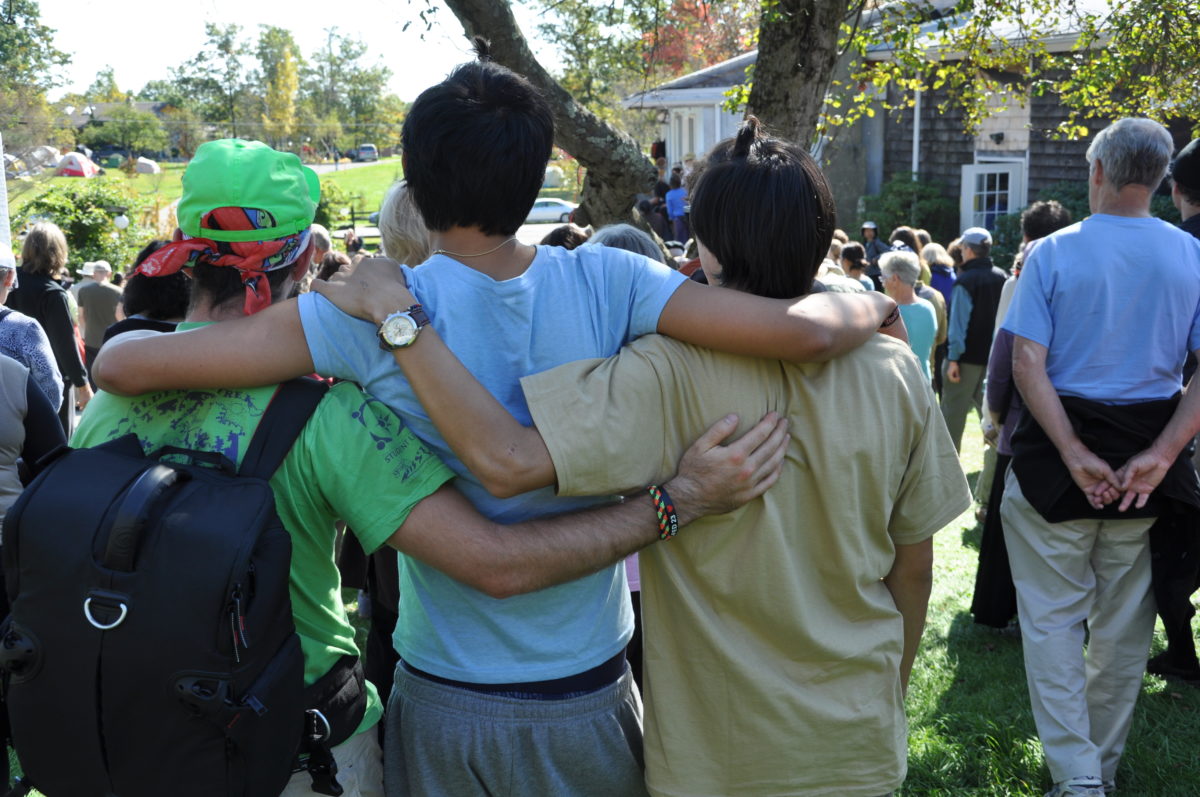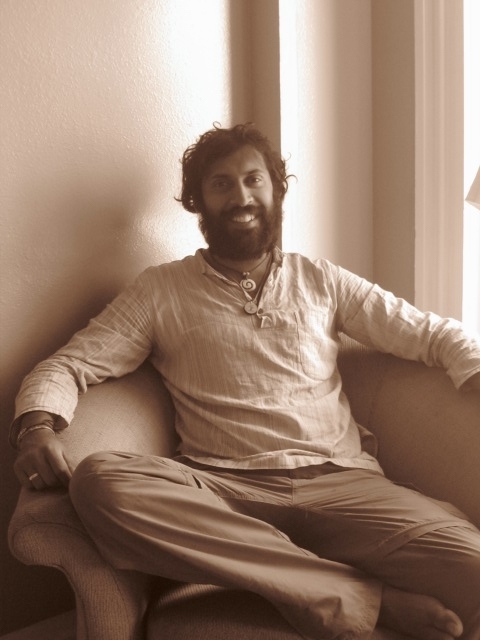By Ankit Rao

“I don’t think this is working.”
My life was turned upside down by these few words. My girlfriend of five years, the person I had bought a house with not more than a year before, and the person I wanted to spend the rest of my life with, let me know that things weren’t exactly as I had presumed them to be.
By Ankit Rao

“I don’t think this is working.”
My life was turned upside down by these few words. My girlfriend of five years, the person I had bought a house with not more than a year before, and the person I wanted to spend the rest of my life with, let me know that things weren’t exactly as I had presumed them to be. Not only had she decided to leave, but she had been seeing someone else without my knowledge.
All the stages of grief—denial, anger, bargaining, depression, and acceptance—would visit me in the years to come. I spent the next several months in what I call my “lost year.” I drank, sometimes six days out of seven. I spent as little time as possible in the house we had shared. There were times when I cried, times when I had so much anger and hate within me that I felt like I was going to explode.
What did I do? I threw myself into my work. My job entailed raising the general public’s awareness of environmental issues. I loved every second of it. I felt so much passion for helping to inspire people to take care of the world. I spent the weekends waiting for Sunday night to arrive so I could once again do what I cared about. I worked more than I ever had, with a lot of zest and a lot of denial. At work I was enthusiastic, full of life and vigor, but after work, as I neared home, I could not help feeling the expectation that what I had experienced was a dream and that I would finally wake up, that I would find my girlfriend waiting for me. That time never came. The house became like a living tomb, and the memories racked my mind every night. For four years, I could not escape them.
You Cannot Help but Love
I finally reached out for what I thought was my freedom by taking a post as an environmental education coordinator in Thailand. My job required me to spend weeks with children out in the rainforests, mangroves, mountains, and river systems of Thailand, and I found the work to be very inspiring. In my free time, I visited temples, swam, relaxed by getting massages, and felt a world away from where I had once been.
One day, however, I felt more than a little challenged. A coworker who I was managing on a trip spent the whole five days angrily disputing every decision I made. It’s not that I was not open to hearing constructive criticism, but I felt she could have found ways to communicate her ideas that did not disrupt the whole group. For the first time in a while, I felt anger rise up inside me.
I needed some peace, and as I inwardly asked for it, the whole universe seemed to assist me by offering me a book from the work library, the first book I laid my eyes on: Peace Is Every Step by Thich Nhat Hanh. Little did I know that my life would change the moment I picked up that book.
The section entitled “Understanding” explains that if someone has shouted, acted badly, or cursed you, you should look for the reasons why he has acted in this way as opposed to getting angry yourself. Once you have done this, you will start to understand the reasons for the person’s behavior. It may be due to his relationship with his parents or friends, or some disruptive event that happened in his life. The underlying message is that once you understand, you cannot help but show love.
So I tried to find out more about my colleague and what she was going through, and gradually I began to understand why she would shout at people when she did not get her way. Instead of having negative feelings toward her, I forgave her and started to show her love, even when she continued to shout. An amazing thing happened: the ice that had developed between us started to melt and the shouting stopped. It was a wonderful way to end my time in Thailand. I also realized that I had not thought about my ex-girlfriend for a whole year. I had moved on.

True Emancipation
I left my job and traveled for fifteen months through India, Nepal, and Canada, going on many treks, volunteering on organic farms, and teaching. For a time I helped teach English to Tibetan students. These people had been denied their independence and forced out of their country, but I witnessed no anger or recrimination in them. I had seen the same attitude in people in Burma earlier that year, and I felt humbled. I wanted to know how people could endure great wrongs without being consumed by anger and blaming. It was during an Introduction to Buddhism course in Dharamsala, India, that I found the answer.
During a meditation session at the course, my thoughts came back to my ex-girlfriend. I looked back to my experience in Thailand and remembered Thich Nhat Hanh’s wise advice to try to understand the reasons why someone has treated you badly. For the first time in a year, I actually started to think about the process and the reasons that led her to do what she did. As much as I thought that she did not conduct herself well, I started to look at what I may have done that could have influenced her to make these choices. For the first time, I started to see what I had done: taking her for granted, complaining, not listening, arguing, and getting angry when she would not act as I expected her to. I was shocked and saddened. I realized for the first time that we were both to blame.
I started to understand, and as I understood, I accepted, and then something happened that was bigger than anything I had ever experienced in my life: I forgave her for everything she had done and how she had done it. I felt at peace with her for her actions and sent her a ream of love. I released a deep sigh of relief. Yet for the remainder of the meditation session, I felt an overwhelming sense of sadness and guilt for how I had acted and what I had done. I knew that if I was to truly emancipate myself from the past, I had to do one more thing: I had to forgive myself.
I forgave myself for all that I had done, for the mistakes that I had made, and for how I had made her feel. I made a promise to be more mindful of my actions and their effects in the future. Intense emotion filled my body, and I cried like a baby. In front of fifty other meditators, I cried as if none of them were present. And in this moment of forgiveness and surrender, my pain started to release. Forgiveness, like a pair of scissors, cut the cords that had bound me for so long.
As I left the meditation course several days later, the light seemed to shine on me from on high. However, looking into the sky I could not see the sun, nor blue skies, nor white wispy clouds. The light was from within. I forgave and I was free.
My fifteen-month journey ended with a retreat at Deer Park Monastery in California. I felt as if I had come full circle. Thich Nhat Hanh’s teachings had helped me many months before in Thai- land and India, and set me upon this course of self-discovery and forgiveness. Now here I was, immersing myself in his teachings. It was wonderful not only to hear Thay speak and to participate in group walking meditation, but also to hear others relate their life experiences and the ways Thay’s teachings had helped them. The message of forgiveness came up many times during conversations, and it was beautiful to hear others talk about having been healed by the same advice: whenever there is a potential argument or confrontation, stop, take a few deep breaths, listen, understand, accept, and show love.
Forgiveness is not a one-stop final destination. We must continue to practice it on our daily journey. If we are to have peace in every step, then forgiveness is the path on which we tread.

Ankit Rao works to inspire people to care more for the planet’s resources, explore their relationship with nature, and see a positive change in their own personal development and wider community as they immerse themselves in the earth’s natural environment.

